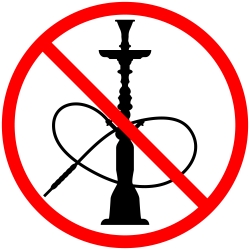Introduction
 Lebanon’s Ministry of Public Health has intensified its health awareness activities, in response to the COVID-19 pandemic. The Ministry has setup a Crisis Committee Chaired by His Excellency the Minister of Public Health. The Ministry has launched a mobile application to update the public about the latest COVID-19 related information and health awareness data. The Ministry is focusing on two main areas within tobacco control: enforcing a ban on waterpipe use in public places and adapting smoking cessation services. The Ministry has been leading the efforts of tobacco control through close coordination with the ministries of interior, tourism, media, justice, economics and finance and municipalities.
Lebanon’s Ministry of Public Health has intensified its health awareness activities, in response to the COVID-19 pandemic. The Ministry has setup a Crisis Committee Chaired by His Excellency the Minister of Public Health. The Ministry has launched a mobile application to update the public about the latest COVID-19 related information and health awareness data. The Ministry is focusing on two main areas within tobacco control: enforcing a ban on waterpipe use in public places and adapting smoking cessation services. The Ministry has been leading the efforts of tobacco control through close coordination with the ministries of interior, tourism, media, justice, economics and finance and municipalities.
Ban on waterpipes in public places
A ban on waterpipe use in restaurants and cafés has been implemented during the lockdown period. Lebanon’s Ministry of Public Health has enacted Law 174 and issued memo No. 48/2020 to ban waterpipes in public places, especially restaurants and cafés, as a preventive measure to prevent infection with COVID-19. Lebanon’s Ministry of Public Health together with the Ministry of Interior and Ministry of Tourism, are enforcing the ban. The law, which has been in place for years, is only now being implemented across Lebanon. Mr Fadi Snan, Director of National Tobacco Control Programme at the Ministry of Public Health stated: “COVID-19 helped us implement the law”.
Health inspectors are sent out on a regular basis to check that the ban is being implemented in restaurants, cafés and closed places where waterpipes and tobacco products are served. In cases of violations, the inspectors liaise with the ministries of interior and justice. Violations are met with hefty penalties, such as fines and in the cases of repeat violations, venues are shut down.
Enforcement of the waterpipe ban has been met by some resistance from restaurants and cafés, which consider waterpipes to be the lucrative part of their business. They are lobbying through the Lebanese Regie for Tobacco (Régie Libanaise des Tabacs et des Tombacs) for waterpipes to be allowed in open places, especially those with swimming pools as soon as the lockdown restrictions are relaxed. Economic factors have also facilitated the implementation of the ban, especially the value plunge of the Lebanese pound against the U.S. Dollar, which has created a steep rise in prices of imported tobacco products three-fold. The ban on waterpipes has continued during the initial period after the lockdown, however, using waterpipes in the privacy of homes especially by youth still poses a challenge.
Adapting smoking cessation services
Lebanon’s Ministry of Public Health is working closely with seven cessation centres across Lebanon. The Ministry is publicising the services of these centres through their website and centres are providing their services at a reduced fee for patients coming through the Ministry website. Providing tobacco cessation medications represents a challenge due to the difficulty to supply them within lockdown restrictions, so many of the centres are providing medication-free treatment plans or focusing more on psychological support. A cessation hotline (1214) is available and publicized widely for any tobacco cessation related enquiries. This year on World No Tobacco Day, the Ministry publicized widely on its website and social media platforms the link between smoking and COVID-19, using World Health Organization videos and materials which highlighted that smokers come from all walks of life.
Way forward
The Government of Lebanon has developed a country-wide five-phase transition plan to start lifting coronavirus restrictions and eventually return to normal activities, subject to the COVID-19 situation across the country. Currently, there is a ban in restaurants and cafes due to the COVID-19 situation in the country.
Related links
Official page for national tobacco control in Lebanon
Official page for national tobacco control in Lebanon (Facebook)
The new version of Lebanon’s Ministry of Public Health mobile application


